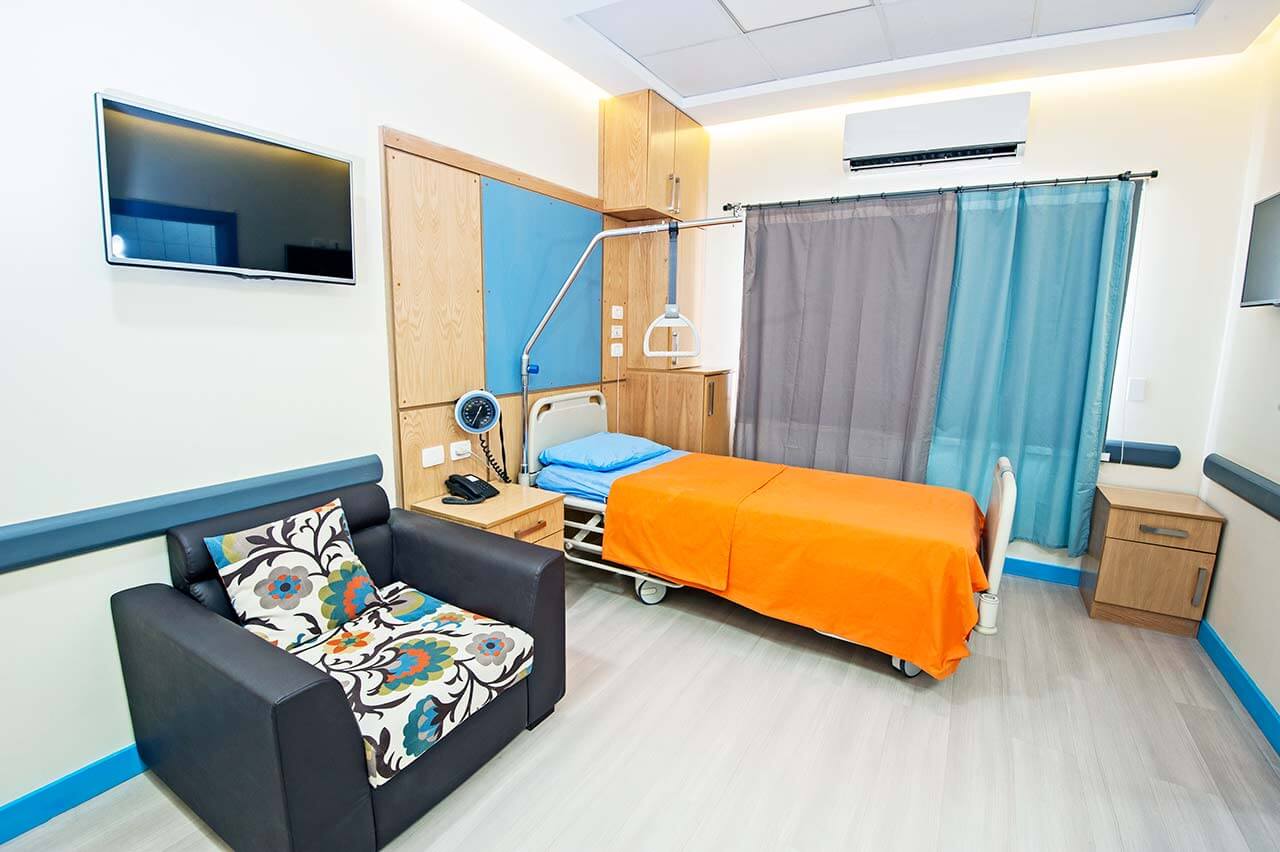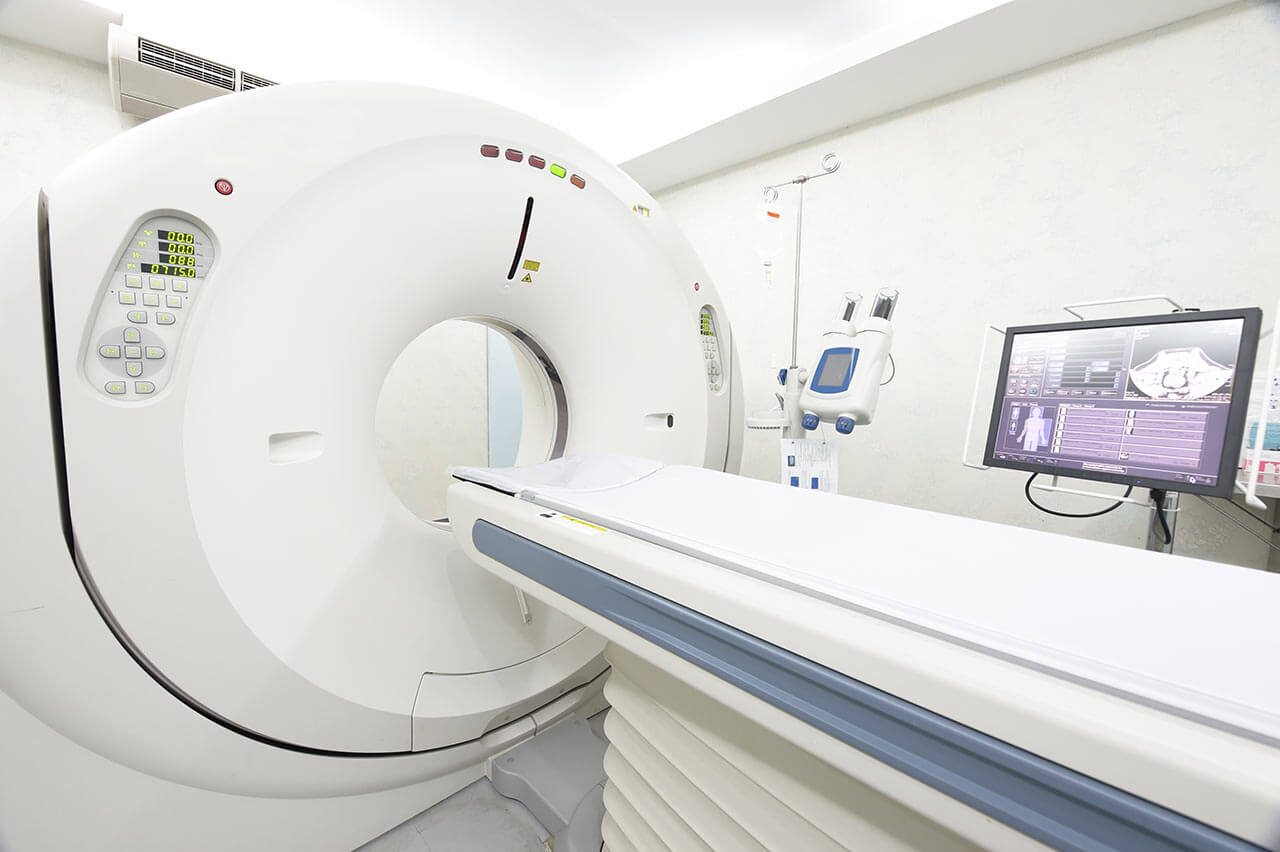
The program includes:
- Initial presentation in the clinic
- clinical history taking
- physical examination
- urological examination
- laboratory tests:
- complete blood count
- clinical urine test
- inflammation indicators
- tumor markers
- kidney function test
- indicators of blood coagulation
- PSA
- pelvic ultrasound
- CT scan (on indication 650 €)
- MRI scan (on indication 1200 €)
- nursing services
- consultation of all leading experts
- development of individual treatment plan
- written statement
Required documents
- Medical records
- Ultrasound scan/TRUS (if available)
Service
You may also book:
 BookingHealth Price from:
BookingHealth Price from:
About the department
The Department of Adult and Pediatric Urology at the Bundeswehr Hospital Berlin offers the full range of diagnostics, conservative and surgical treatment of genitourinary diseases in men and boys. The main areas of the department's clinical activity include the treatment of diseases of the kidneys and urinary tract in both sexes, the treatment of pathologies of the reproductive system in men. The doctors pay special attention to the surgical treatment of malignant urologic tumors – more than 1,700 surgical interventions of varying complexity are performed annually in the department. Surgical options for cancer treatment are complemented by various types of chemotherapy and targeted therapy, for example, in kidney cancer. In addition, the department's doctors specialize in the comprehensive treatment of kidney stone disease. The department's specialists have in their arsenal all modern technical resources for the most effective treatment that meets the requirements of modern European medicine. The doctors regularly improve their professional skills by undergoing advanced training courses, participating in national and international conferences for the exchange of clinical experience, etc. The department is headed by Dr. med. Holger Heidenreich.
The department offers the services of a highly specialized Prostate Center Berlin-Mitte. Thanks to an interdisciplinary approach, vast experience and high professionalism of doctors, this center provides the accurate diagnostics and effective treatment of prostate cancer, benign prostatic hyperplasia and prostatitis (inflammatory lesions of the prostate gland). The primary focus of the specialized center is on the treatment of prostate cancer. Since this oncopathology is one of the most common types of cancer in men, the doctors offer comprehensive preventive check-ups to exclude the presence of the malignant disease or to detect it in its early stage. This check-up includes a digital rectal exam, a PSA (prostate-specific antigen) test and transrectal ultrasound (TRUS). If the results of this check-up confirm the presence of a tumor in the prostate gland, then the patient may be prescribed additional diagnostic tests, such as CT, MRI, skeletal scintigraphy or PET/CT. The complex of tests is prescribed by the attending physician individually, based on the particular clinical case. The next stage is the development of an optimal treatment regimen. In a case of localized prostate cancer, surgery and radiation therapy are most commonly used. The patients with metastatic prostate cancer are usually prescribed antiandrogen therapy, chemotherapy, local irradiation of bone metastases, radionuclide therapy, pain management, and other treatment methods.
Prostate adenoma is the most common benign pathology in men, so the department offers all the options of modern urology for the treatment of this disease. Depending on the stage of the pathological process, it is possible to carry out drug therapy or a surgical intervention. In the first case, the department's urologists resort to phytopreparations, 5-alpha-reductase inhibitors, and antiandrogen therapy. If the doctor concludes that the patient requires surgery, then transurethral resection of the prostate, transurethral incision of the prostate, open enucleation, holmium laser enucleation, laser vaporization, transurethral needle ablation, or transurethral microwave thermotherapy can be performed.
The department is also one of the best in the treatment of kidney stone disease. For this purpose, it uses all advanced treatment methods, including extracorporeal shock wave lithotripsy, percutaneous nephrolitholapaxy, stone removal with ureterorenoscopy, bladder stone fragmentation, etc. The treatment method is selected taking into account the size and location of the stone, symptoms and the presence of urinary retention, as well as the patient's general health. Drug therapy is often sufficient for small stones.
The specialists of the medical facility have excellent professional skills in the treatment of bladder cancer. The pathology affects both women and men, but it develops almost four times more often in males. Bladder cancer, like many other cancers, is asymptomatic. The first sign by which oncology can be suspected is the presence of blood in the urine. Other manifestations of the disease may include frequent urination, frequent bladder infections, pain when urinating, etc. The key examinations for suspected bladder cancer are ultrasound scanning and cystoscopy. As for the treatment, the most common option is the surgical removal of the neoplasm – transurethral resection of the bladder.
The department's range of medical services includes:
- Surgical treatment of urologic cancers
- Total removal of the prostate while maintaining potency (radical prostatectomy)
- Total removal of the bladder and its replacement while maintaining the ability to control urination (radical cystectomy)
- Radical removal of a kidney tumor (nephrectomy)
- Removal of the kidney and ureter (nephroureterectomy), also using laparoscopic techniques
- Partial resection of the kidney or enucleation of a kidney tumor (organ-sparing surgery)
- Minimally invasive removal of the lymph nodes (lymphadenectomy)
- Partial and total removal of the penis and lymph nodes for penile cancer (penectomy/lymphadenectomy) with lymph node labeling
- Removal of the testicle with the spermatic cord
- Surgical treatment of kidney diseases
- Simple or radical removal of the kidney with or without the adrenal gland, partial removal of the kidney (nephrectomy)
- Laparoscopic kidney removal
- Renal pelvis plastic surgery (also with the use of laparoscopic techniques)
- Surgery to fix the kidneys in a case of their prolapse (nephropexy)
- Surgical interventions on the external reproductive system
- Foreskin removal/circumcision
- Removal of the testicle and epididymis (orchiectomy/epididymectomy)
- Hydrocele resection
- Removal of seminal fluid accumulation in the epididymis (spermatocele resection)
- Fixation of a movable testicle, repair of testicular torsion (orchidopexy)
- Sclerotherapy for varicocele
- Sterilization in men
- Endoscopic interventions on the urinary and reproductive system in men
- Removal of bladder tumors through the urethra (transurethral resection of the bladder)
- Surgical treatment of benign prostatic hyperplasia with access through the urethra (transurethral resection of the prostate)
- Transurethral incision of the prostate (TUIP)
- Image-guided dissection of the urethra
- Treatment of ureteral stenosis
- Ureteroscopy to remove stones (ureterorenoscopy)
- Electrohydraulic and laser fragmentation of stones, percutaneous nephrolitholapaxy, including mini percutaneous nephrolitholapaxy
- Surgical treatment of kidney stone disease
- Extracorporeal shock wave lithotripsy
- Percutaneous nephrolitholapaxy
- Removal of stones using ureterorenoscopy
- Bladder stone fragmentation
- Other surgical interventions
- Surgical interventions for inguinal hernias
- Open surgery for benign prostatic hyperplasia
- Reconstruction of the urethra using the oral mucosa
- Bladder fixation (in its prolapse) to the coccyx
- Penile prosthetic repair
- Penile curvature correction (Nesbit operation)
- Laparoscopic varicocele clipping (an alternative to sclerotherapy for varicose veins of the spermatic cord)
- Surgical treatment of urologic diseases in children: cryptorchidism, phimosis, varicocele, hypospadias and others
- Other medical services
Photo of the doctor: (c) Bundeswehrkrankenhaus Berlin
About hospital
The Bundeswehr Hospital Berlin enjoys a reputation as one of the leading medical facilities in Germany, where patients receive top-class medical care corresponding to the high standards of European university medicine. The medical center is an academic hospital of the Charite University Hospital Berlin – the largest and the most reputable in all of Europe. The main clinical focuses of the medical facility include emergency care, traumatology, urology, internal medicine, surgery, neurosurgery, neurology, nuclear medicine and others. The hospital offers 15 specialized departments, whose medical teams guarantee excellent treatment results, safety and an individual approach to their patients.
The hospital's staff consists of more than 1,100 competent employees. They work hand in hand to provide their patients with comprehensive and the most effective treatment. Of paramount importance is an individual approach to each patient and his clinical case. The specialists are always open to a dialogue with their patient, tell about the specificities of the upcoming treatment and its expected results. Whenever required, it is possible to involve experienced psychologists in the therapeutic process, who will help the patients to get rid of depressive states and set themselves up for a favorable treatment outcome.
The hospital has at its command state-of-the-art technical resources: equipment for minimally invasive interventions, diagnostic and therapeutic endoscopic procedures, navigation systems, advanced surgical microscopes, various laser devices, imaging systems for the accurate examinations and percutaneous interventional procedures.
The hospital has a quality management system, thanks to which it can strictly control the quality of patient care and other internal processes. In addition, the healthcare facility became the first Bundeswehr hospital, which was awarded the KTQ® certificate (06.02.2006). The KTQ® certification is carried out every three years and the hospital always passes it successfully. And then in 2000, the hospital was certified in accordance with the DIN EN ISO 9001:2000 standards. These achievements testify to the outstanding quality of medical care and the leading position of the hospital in the healthcare sector.
Photo: (с) depositphotos
Accommodation in hospital
Patients rooms
The patients of the Bundeswehr Hospital Berlin live in comfortable single and double patient rooms. Each patient room is equipped with an ensuite bathroom with a shower and a toilet. The patient room furnishing includes a comfortable bed, a bedside table, a TV and a telephone. To ensure a pleasant hospital stay, here is a library with an excellent choice of audiobooks, magazines and games. There is also a beautiful park on the territory of the hospital where one can enjoy peace, clean air and beautiful nature.
Meals and Menus
The hospital offers delicious and healthy three meals a day: a buffet breakfast, a hearty lunch and a light dinner. Every day, patients have a choice of three menus. Vegetarian dishes are also available.
If for some reason you do not eat all the foods, you will be offered an individual menu. Please inform the medical staff about your dietary preferences prior to the treatment.
Further details
Standard rooms include:
Accompanying person
Your accompanying person may stay with you in your patient room or at the hotel of your choice during the inpatient program.
Hotel
You may stay at the hotel of your choice during the outpatient program. Our managers will support you for selecting the best option.




